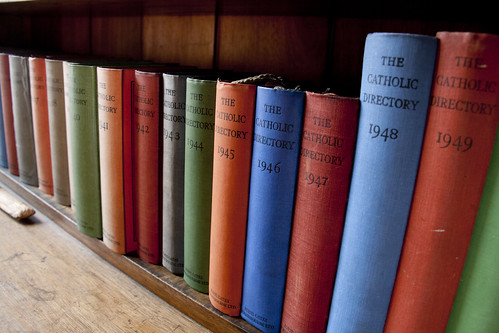
In my last two posts, I discussed the
devotional activities the Latin Mass Society organises, and our
training and educational initiatives. These represent a whirlwind of events: there is always something happening, or about to happen, over and above the more routine matter of supporting the celebration of the Traditional Mass week by week in parishes, which is of course a ball we can never allow to drop.
But there is another aspect of our work which is also necessary: research and campaigning. The liturgical restoration will not take place without the right side winning a number of arguments, and not without drawing facts and arguments, including the facts of the Church's law, to the attention of the Catholic public and, on occasion, of the hierarchy. If you like what we do, then show your support by
becoming a members of the LMS.
If seminarians are all taught and accept that Latin is a barrier to participation in the liturgy, that the priest celebrating with his 'back to the people' symbolises contempt for them, and that Chant should be rejected because it is too difficult for congregational singing, things are, quite simply, never going to improve. In point of fact seminarians are today increasingly not being taught these old orthodoxies, and they are increasingly rejecting them, because the liberals have lost the argument on these issues. The work of Pope Benedict XVI, as a private theologian as well as his teaching as Pope, and that of a large number of young scholars, have made the old arguments untenable. The old orthodoxies retain their grip on those who have not caught up with the latest thinking, however, and continue to damage the prospects of restoration. When a priest suggests celebrating
ad orientem, for example, he is likely to be met with opposition from the Faithful based on just those old arguments. Those ideas need to be exposed, held up to the light, and refuted, again and again and again, until the message gets through.
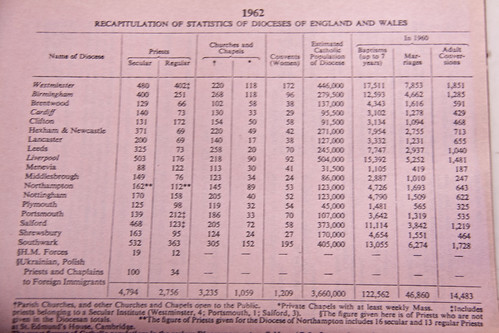 |
| Nearly 14,500 adult conversions in 1960. It's about of third of that now. |
This needs to be done not with angry polemic, nor with sloppy arguments from dodgy websites, but with charity, care, and scholarship. This was the thinking behind a major project of the International Federation
Una Voce, a series of 'Position Papers', which began to be published individually in 2010 and in 2019 appeared as a book:
The Case for Liturgical Restoration, published by Angelico Press. The are highly compressed, heavily footnoted, executive summaries of the arguments needed by those engaged in any kind of serious debate. No one on the internet can any more have any excuse to wheel out the old liberal canards, the discredited scholarship of 60 years ago which once seemed so daring and so unanswerable. They remain online and free to read
here.
I have published a book of essays addressing criticisms of the Traditional movement--
The Liturgy, the Family, and the Crisis of Modernity, and a book about the people who signed petitions to save the Traditional Mass:
The Intellectuals and the Latin Mass.
This blog itself has some role to play. But to take the battle, not so much to the enemy as to the unconverted, I and other Latin Mass Society people regularly get letters and articles, as well as news reports, into the press. I write in a number of online platforms -- see the sidebar for links. If we didn't exist, if we weren't supported by our network, if we didn't have expertise to call on and volunteers to help with research, and if we weren't given some standing by the fact of our representing a large organisation, this would be impossible, and the traditional and conservative point of view would be vastly less well represented and less well argued in the UK and internationally.

To repeat: it is the Latin Mass Society which makes this possible. A good illustration is the research we did on the number of ordinations over the decades. Having seen some dubious claims being made in public, we are able to put a team of volunteers (including me) into one of the very few places in the country with the entire set of Catholic Directories, and get the necessary research done in a couple of weeks. The work we did took many, many man-hours, a bit of money, some good friends and some zealous supporters. The Latin Mass Society had the will and the means to do it: if we hadn't it wouldn't have happened. And the idea that more priests were ordained this year than in the 1950s would probably still be out there in public.
A different kind of campaigning goes on behind closed doors. We enjoy good relations with the hierarchy, at the human level, and we always have, despite our disagreements. Before
Traditionis Custodes Mass has been celebrated for us by Bishop Hopes, the new Bishop of East Anglia, Bishop John Arnold, an auxiliary Bishop of Westminster, and Bishop McMahon when he was bishop of Northampton. Bishop Drainey of Middlesbrough, Bishop Davis of Shrewsbury, and Archbishop Longley of Birmingham have been present at our Masses. We talk to and exchange letters with bishops both in relation to matters in their dioceses and in relation to their responsibilities in the Bishops' Conference. We are also in touch with a good many different persons and departments in Rome. This kind of thing is only possible if you represent some organisation with some kind of standing, if there is continuity over many years, and if you have some kind of office support. No lay person, no priest, could keep this kind of dialogue up consistently. We can do it, not because we are heroes, but because there is a structure to keep it going.
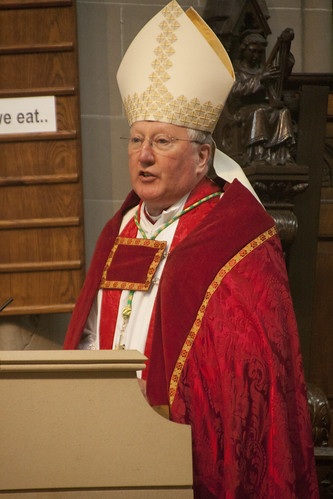 |
| Bishop Terence Drainey at the LMS York Pilgrimage 2012 |
Something else we have is a database: of priests who say the Traditional Mass, and of laity who want it. On several occasions in the last year or so we have had non-public campaigns which have involved getting in touch with large numbers of priests or, in a particular part of the country, with our lay supporters, to seek their views or support for a specific initiative, or how to respond to the crisis represented by COVID. These tasks used up enormous amounts of office and volunteer time, and they would have been simply impossible without our network of supporters, our database, and the administrative support the Office gives us. We are probably never going to get any public credit for these things, but if you'll take my word for it they were important and successful. If the Latin Mass Society hadn't existed, these things would not have happened.
Does the Latin Mass Society do anything useful? Yes, we do. If you are at all interested in dealing in a positive way with the aftermath of the 'collapse of the liturgy' which Pope Benedict spoke about as Cardinal Ratzinger, then it must be pretty difficult to say that we don't have a positive role to play. We can't do this without support. Forget your prejudices about not wanting to join things, or about what happened twenty years ago, or whatever it is which stops you joining, and
join the Latin Mass Society!
As Kipling wrote:
Oh, England is a garden, and such gardens are not made
By singing 'Oh how beautiful' and sitting in the shade...
 A while ago I did a post about St Philomena, against Mgr Basil Loftus' graceless attack on her. This mentioned the little shrine to her in SS Peter & Paul and St Philomena in New Brighton, the Wirral, served by the Institute of Christ the King Sovereign Priest. I've just been sent a photograph of what it looks like now.
A while ago I did a post about St Philomena, against Mgr Basil Loftus' graceless attack on her. This mentioned the little shrine to her in SS Peter & Paul and St Philomena in New Brighton, the Wirral, served by the Institute of Christ the King Sovereign Priest. I've just been sent a photograph of what it looks like now.

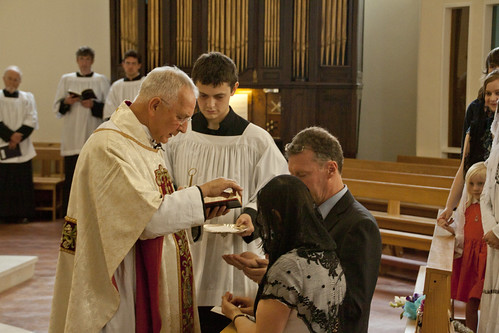
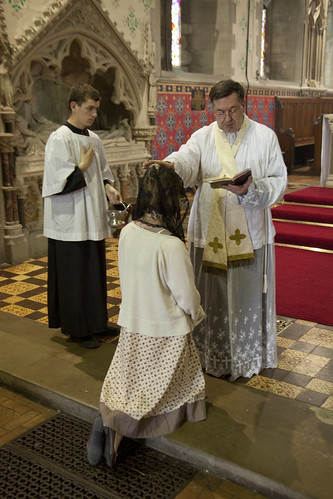
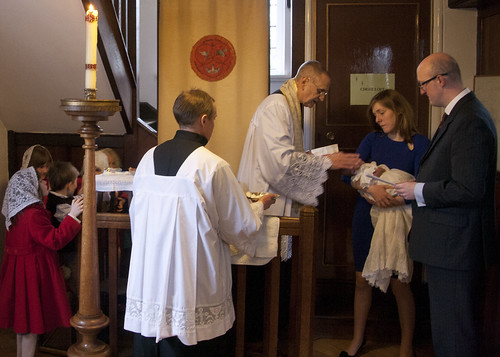
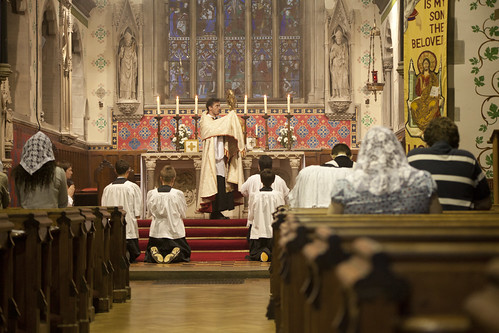
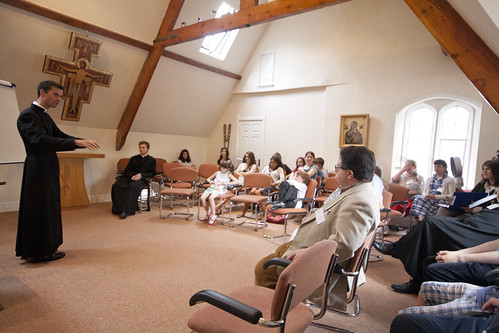









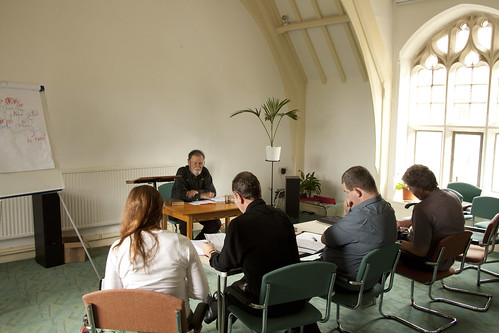
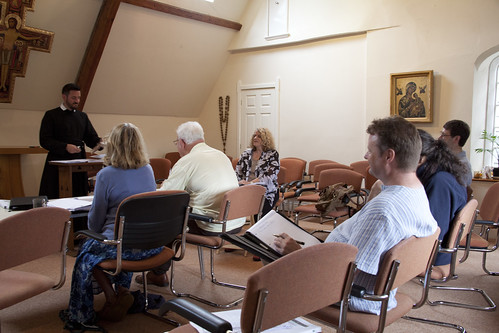


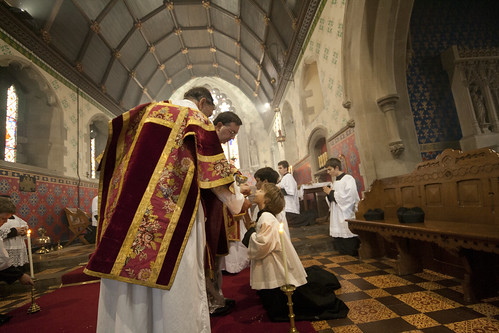











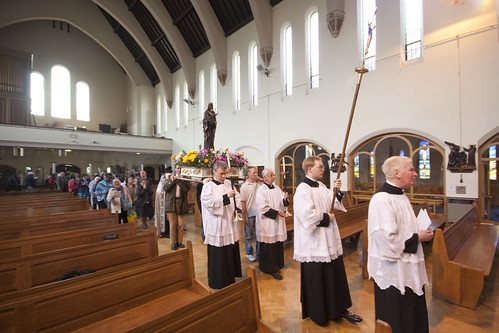


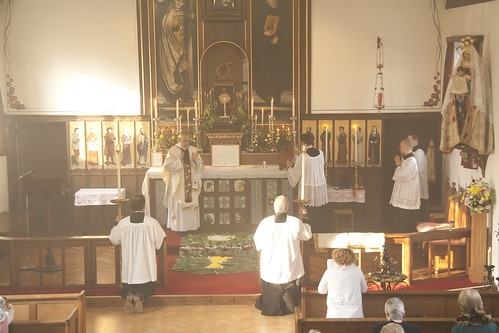
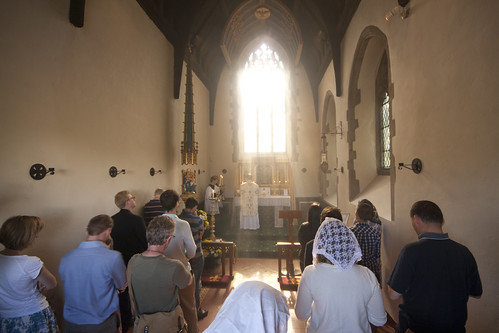
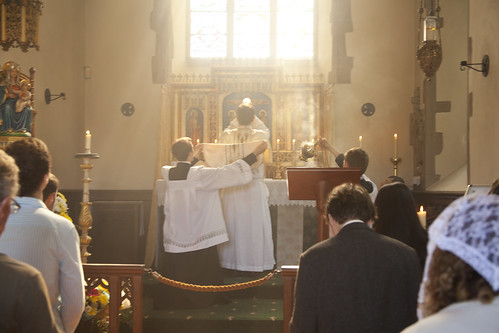
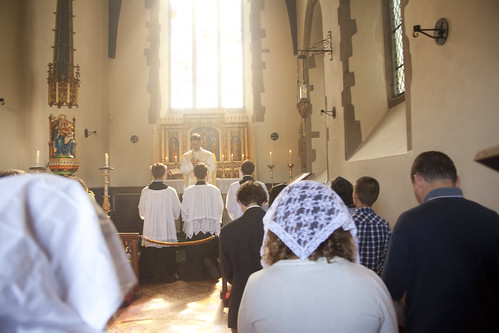
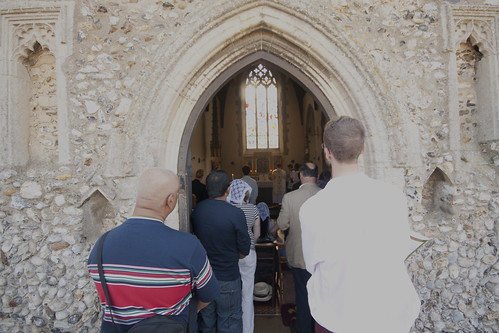
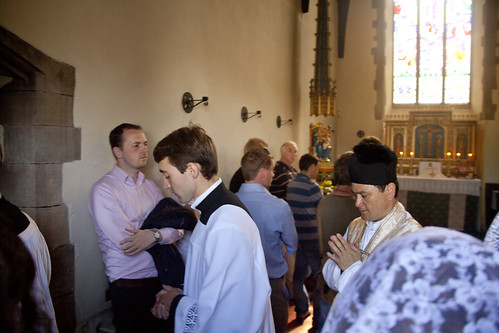
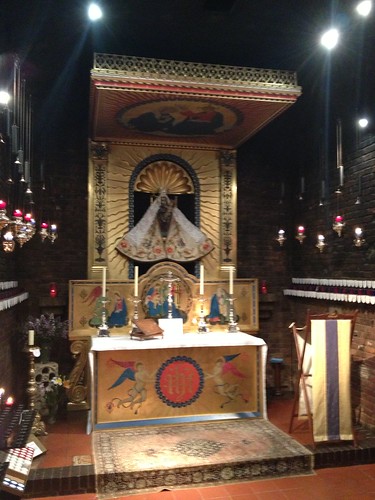
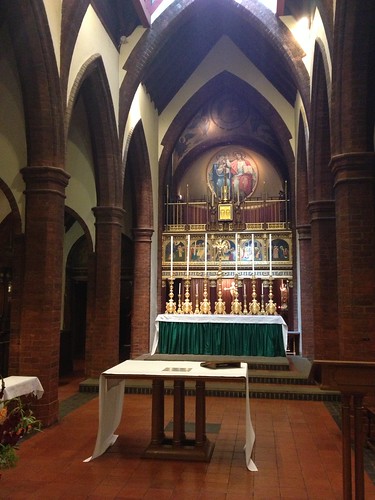
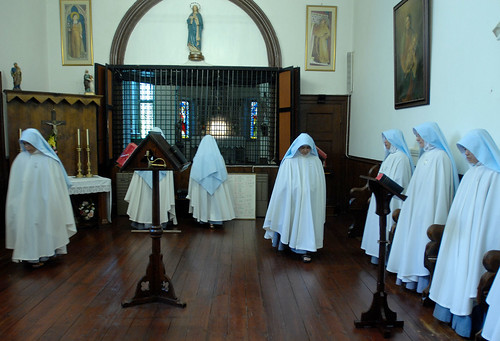
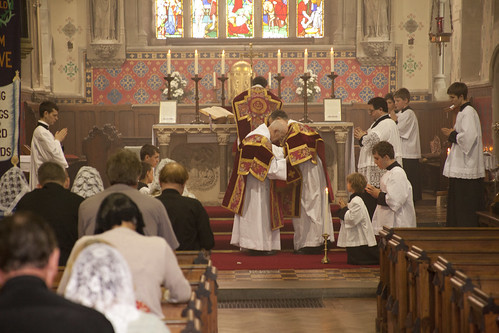
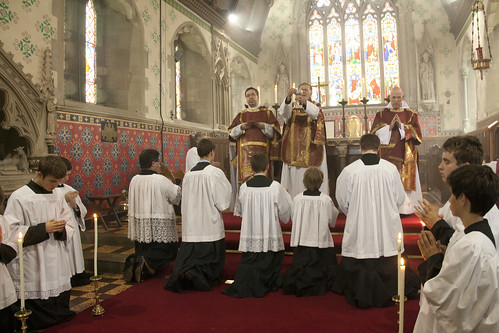
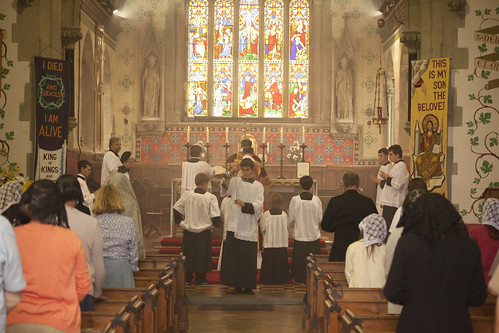


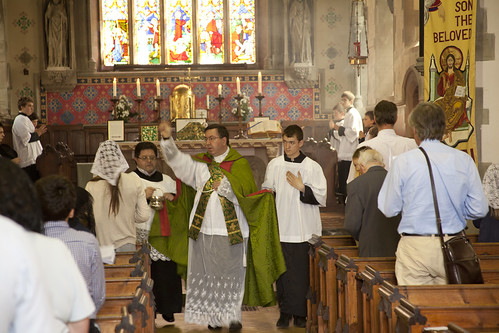
As I have pointed out on this blog before, the claim is fatally undermined not only by the complete lack of support in the text, but the reference in the Letter to Bishops which came with it to 'young people' who appreciate it. This implies a process of spreading and discovery of the traditional Mass - 'proseletyzation' - with which Pope Benedict was completely comfortable.
#22 by Paul Inwood on September 20, 2013 - 4:17 am